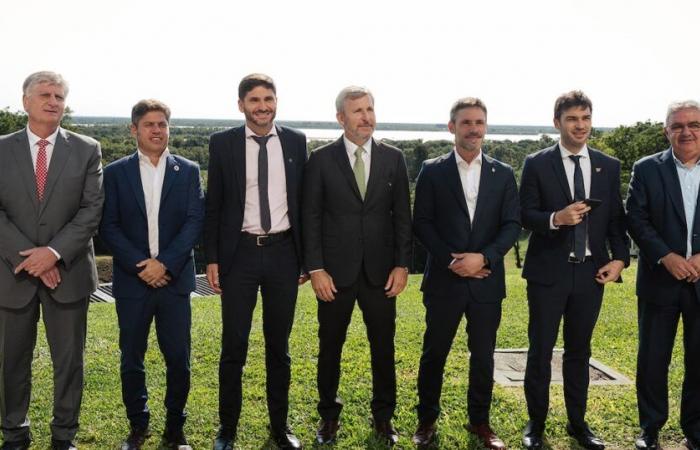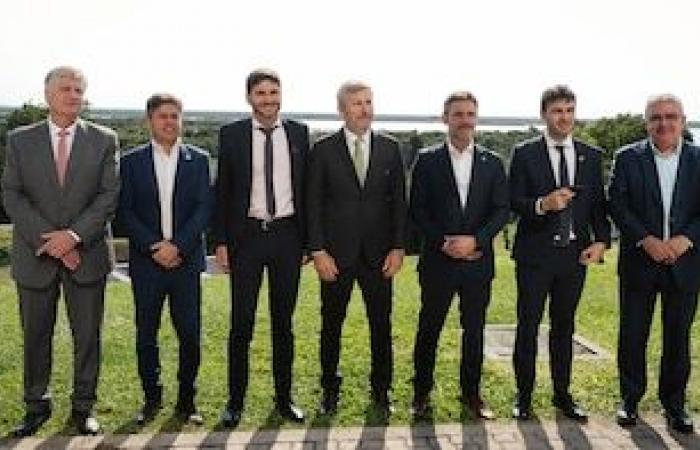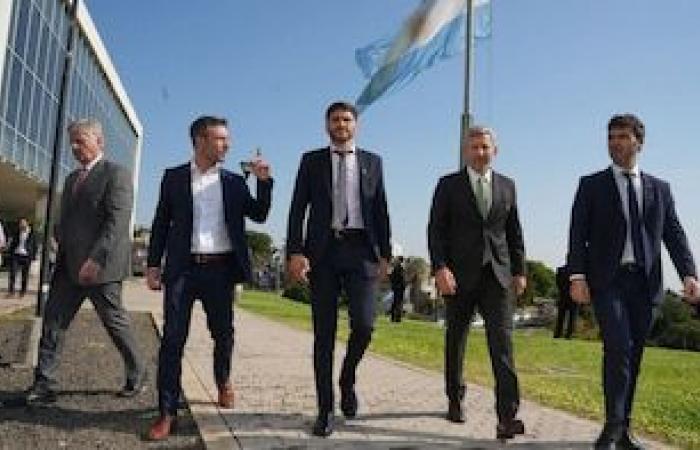An event of the Federal Investment Council (ICC) in Paraná was the scene of a Crossing between Kicillof and Frigerio. The reason for the debate was the policies implemented by the national governmentmainly those of opening.
The Buenos Aires president questioned the opening measures of foreign trade of the national government by Do not protect industry, work and national production. That, “he said,” he will counterclass what the world does.
“I promised not to be too controversial”, Opened the Buenos Aires president, the first on the list after the welcome he gave Ignacio Lamothehead of the ICC. However, almost immediately he said that Argentina requires a discussion about orientation of development and its productive matrix in this world context that it characterized as “uncertain, unexpected and novel”.
“This is resolved federally. Any other search will be a failure and not a solution”, Added the opposition referent.
Then, Kicillof recalled that 20 years ago the world consensus was the Globalization and market opening to increase the circulation of goods and services beyond borders. And marked that change with the arrival of Donald Trump to the US presidency
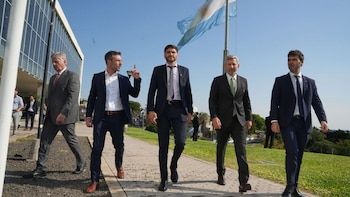
The main foreign policy of the American government became “Protect the industry with tariffs. We are facing a paradigm shift”He defined. Then, he pointed out that this became a“Common factor in all countries of the world, except Argentina”.
Contrasted that while lThe United States seeks to “defend national industry and work”and for this, even “breaks the principles of the WTO (World Trade Organization) in order to reindustrialize after deindustrialization for world relocation in the East, mainly in China,” Our country “is looking for free trade agreements” when “the climate that is breathed is ours.”
Kicillof also said that, in recent times, 13 thousand industries have been closed and 440 thousand jobs were lost. “Destroying cannot be anyone’s idea. There is a red light: the damage to the non -care policy“Of production, work and companies. That is why the National Government does not have these words on its agenda,” he said. He also criticized that the national market is opening “to the dumping in the midst of a commercial war.”
-“The consensus are not universal. There are dilemmas that we should review again,” he said. Among them, he located if Argentina “has to be a primary or industrialized country. I don’t believe in that. It has to be the two things. And also a miner,” he said.
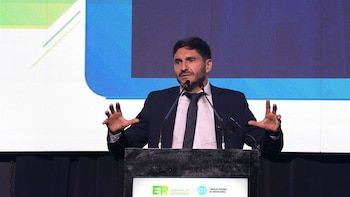
The other dilemma is “The market. The national government says every market. Here (by the CFI summit) we are discussing planning. The states have the obligation to plan ”and not always remain at the juncture.
The fact that He collected the glove was the governor of Entre Ríos, Rogelio Frigeriowho marked that Argentina was stilldespite the speeches, One of the most closed countries of the world for its low level of foreign trade. This is measured, “said- adding exports and imports and its impact on GDP.
The idea was not to put together a summit of governors anti -government. Therefore, in turn, the entrerriano president asked for prudence before questioning the way of governing. “We have to be very humbleespecially those who, like me, have had high responsibilities on different opportunities. The level of complexity of Argentina’s problems should avoid believing that we have the precise, that we can point out with the finger what is right and wrong. We have proven it when we have touched the duty to govern, it is very difficult. ”
Even, Frigerio paraphrased Kicillof: “As Axel said, blunt truths in the past suddenly they transform into other paradigms. Today the world is closing. But despite that, Argentina is still one of the most closed in terms of foreign trade. ”
In addition to them, the governor of Catamarca made the floor, Raúl Jalil; that of Santa Fe, Maximiliano Pullaro; that of the pampas, Sergio Zilioto And Chubut’s, Ignacio Torres.
The central tonic went by not to shy away the fiscal discussion proposed by the national government, but at the same time claim for logistics infrastructure and works that the provinces need to improve their competitiveness.

